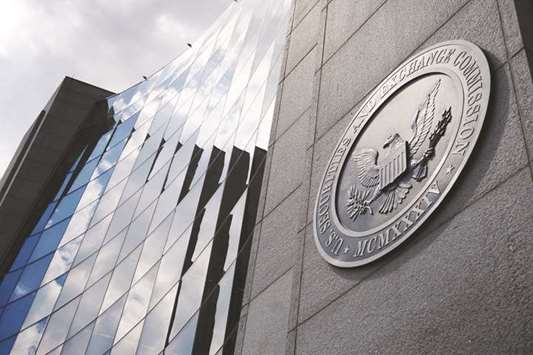Could Wall Street firms such as Apollo Global Management and Carlyle Group really have some of the smallest pay gaps between their CEOs and workers?
That’s the question that has some consumer and worker advocates raising their eyebrows as reports required by the Securities and Exchange Commission disclose for the first time how much CEOs make compared with median workers.
Showing some of the narrowest gaps are publicly traded private equity firms where top executives have an estimated net worth in the billions of dollars, according to the Bloomberg billionaires Index.
Bartlett Naylor, Public Citizen’s financial policy advocate, said the private equity firms’ narrow ratios present an “optics problem,” especially for academics and researchers collecting compensation data to evaluate industry trends.
These ratios “may give the illusion that there is greater equity in the investment sector than there actually is,” Naylor said. “I think it warrants scrutiny.”
The narrow ratios “certainly strike us as odd,” AFL-CIO Investment Office Director Heather Slavkin Corzo said.
Naylor and Slavkin Corzo told Bloomberg Law their organisations are taking a harder look at the private equity pay data that’s been disclosed. Public Citizen is contemplating whether to pursue a course of action, including raising the issue with regulators, Naylor said.
The SEC, under a mandate from the Dodd-Frank Act, now requires most exchange-listed companies to calculate and report the median compensation of their employees and compare it to their CEO’s pay. The closer a company’s ratio is to 1-to-1, the less disparity is assumed to exist between its CEO and median worker’s annual compensation.
The bulk of private equity executives’ income is often tied to returns on investments or profit-sharing arrangements, as opposed to the multimillion-dollar compensation packages often received by CEOs of public companies.
Apollo, among the most well-known of US private equity firms, reported a 1-to-1 ratio in a February 12 filing. Co-founder and CEO Leon Black received $251,888 in salary and other compensation during 2017, about $2,000 more than Apollo’s median employee, the company said.
Black elects to take a $100,000 salary, no bonus, and no cut of any deal profits, but derives most of his wealth from the company’s dividends — the same per-share amount given to public shareholders. In total, he received $191.3mn last year from his base compensation and dividends, up 45% from 2016, Apollo reported.
Black owns 92.7mn, or 31.5%, of the New York-based asset manager’s class A shares. And his net worth is about $6.1bn, according to Bloomberg’s billionaires Index.
Apollo’s median employee compensation of $249,750 doesn’t, and isn’t required to, include dividends — a key factor behind the 1-to-1 pay ratio.
Carlyle reported a 1.4-to-1 pay ratio for 2017 in a February 15 filing. The company’s median employee compensation was $201,315, while the pay of each of its three co-principal executives totalled $281,750, it said.
Carlyle’s compensation arrangement with co-founders David Rubenstein, William Conway, and Daniel D’Aniello is comparable to Apollo’s arrangement with Black. The three men take a base salary and get the bulk of their income from company dividends.
Carlyle said in its filing that Rubenstein received $66.3mn in dividends during 2017, while Conway and D’Aniello each got $62.7mn. The firm did report that its future pay ratios will “differ substantially,” as its new co-CEOs agreed to pay packages with “additional significant elements of compensation.”
Under the SEC rules, companies must use a “consistently applied” compensation measure to calculate median employee pay and develop their ratios.
The commission provides considerable flexibility for the selection of a median employee, including a partial exemption some firms can use to exclude a small pocket of their non-US workforce.
Not all private equity firms are reporting narrow pay spreads.
KKR & Co reported a 429-to-1 ratio in a February 23 regulatory filing. It said its median employee compensation totalled $265,000, while its two co-CEOs each earned more than $113mn.

The Securities and Exchange Commission headquarters in Washington, DC. The SEC now requires most exchange-listed companies to calculate and report the median compensation of their employees and compare it to their CEO’s pay.
